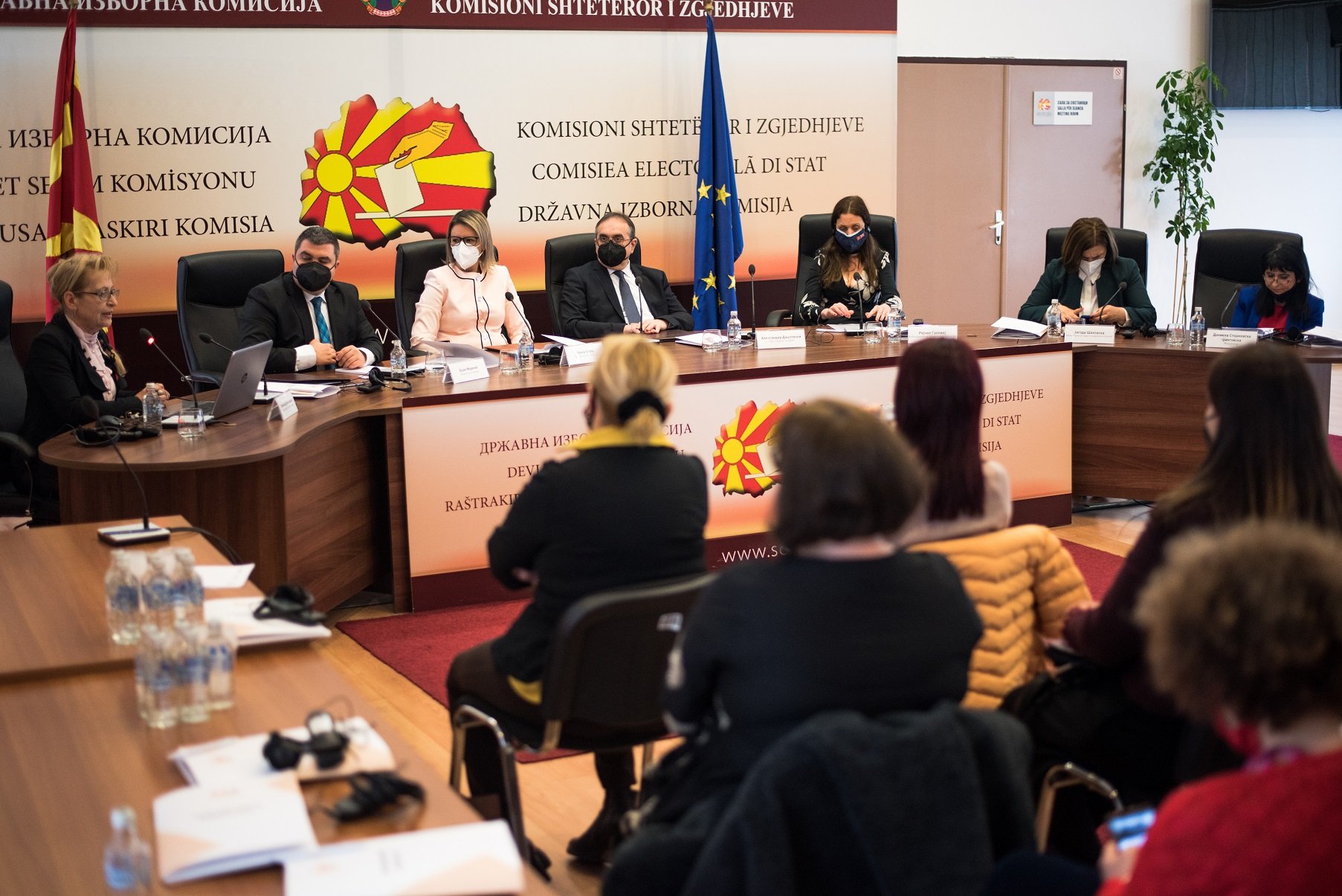Local association “Inkluziva” organised their largest observation mission to date, counting 67 observers, all of which persons with disabilities, who observed the parliamentary elections and the access to right to vote on the July elections in North Macedonia. The report was presented to the public in partnership with the State Election Commission, the institution responsible for this process, alongside the Ministers of Justice and Labour and Social Affairs and British Ambassador in the country Rachel Galloway.
According to Inkluziva’s president Blagica Dimitrovska, on every fifth voting place (20 percent) there was no voting booth for persons using wheelchairs. Even though in recent years improvements have been made to address the accessibility of the electoral process, such as introducing the Braille ballot covers and voting tabulators for easy signing, they were not placed on all polling stations.
The findings were presented for the public at the State Election Commission, and its president Aleksandar Dashtevski stated that international standards for human rights proclaim equal rights for all persons, without discrimination, and that the SEC will continue to work to ensure accessibility to the voting process.
At the promotion event British Ambassador to North Macedonia, Rachel Galloway, shared that even though improvements to the voting process have been made, there is much more that remains to be done to remove barriers to this fundamental right.
The Minister of Justice, Bojan Marichikj, stated that “We should work on increasing the representation of persons with disabilities in the active political life, increase their participation in decision-making and the topics that matter to them should always find a place on the political agenda”. The Minister of Labour and Social Affairs Jagoda Shahpaska stressed the importance of the representation of persons with disabilities as decisionmakers in local and national level.
The observation mission by Inkluziva was organised with the support from Westminster Foundation for Democracy, though the Western Balkans Democracy Initiative.
The findings served to raise the public’s awareness to the rights of persons with disabilities in the electoral process, and to remind political parties to advocate for and include persons with disabilities and to inform institutions where and how to make policy and legislation changes. Institutions showed openness and interest to follow up on the recommendations to make the election process more accessible, hoping to see more significant improvements in the future.
The document is available in Albanian
